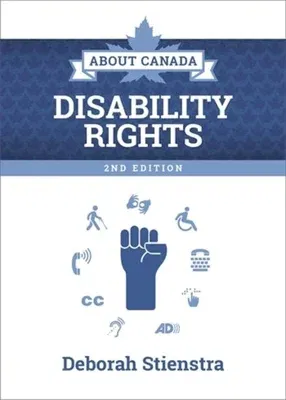Including people with disabilities fully into Canadian society, with the
rights enjoyed by non-disabled people, requires a fundamental social
transformation, not simply "fixing" some bodies. It requires deep
changes in the attitudes, cultural images and policies that make people
with disabilities invisible, set them aside, undermine or reject their
contributions and value, and justifies their neglect, abuse and death.
This shift involves the simple recognition and honouring of the dignity,
autonomy and rights of all people, including those who experience
disabilities.
In the second edition of About Canada: Disability Rights, Deborah
Stienstra explores the historical and current experiences of people with
disabilities in Canada, as well as the policy and advocacy responses to
these experiences. Stienstra demonstrates that disability rights enable
people with disabilities to make decisions about their lives and future,
claim rights on their own behalf, and participate actively in all areas
of Canadian society. Disability rights can and does increase access to
and inclusion in critical areas like education, employment,
transportation, telecommunications and health care. Additionally,
Stienstra identifies new approaches and practices, such as universal
design, disability supports and income supports, that can transform
Canadian society to be more inclusive and accommodating for everyone.

